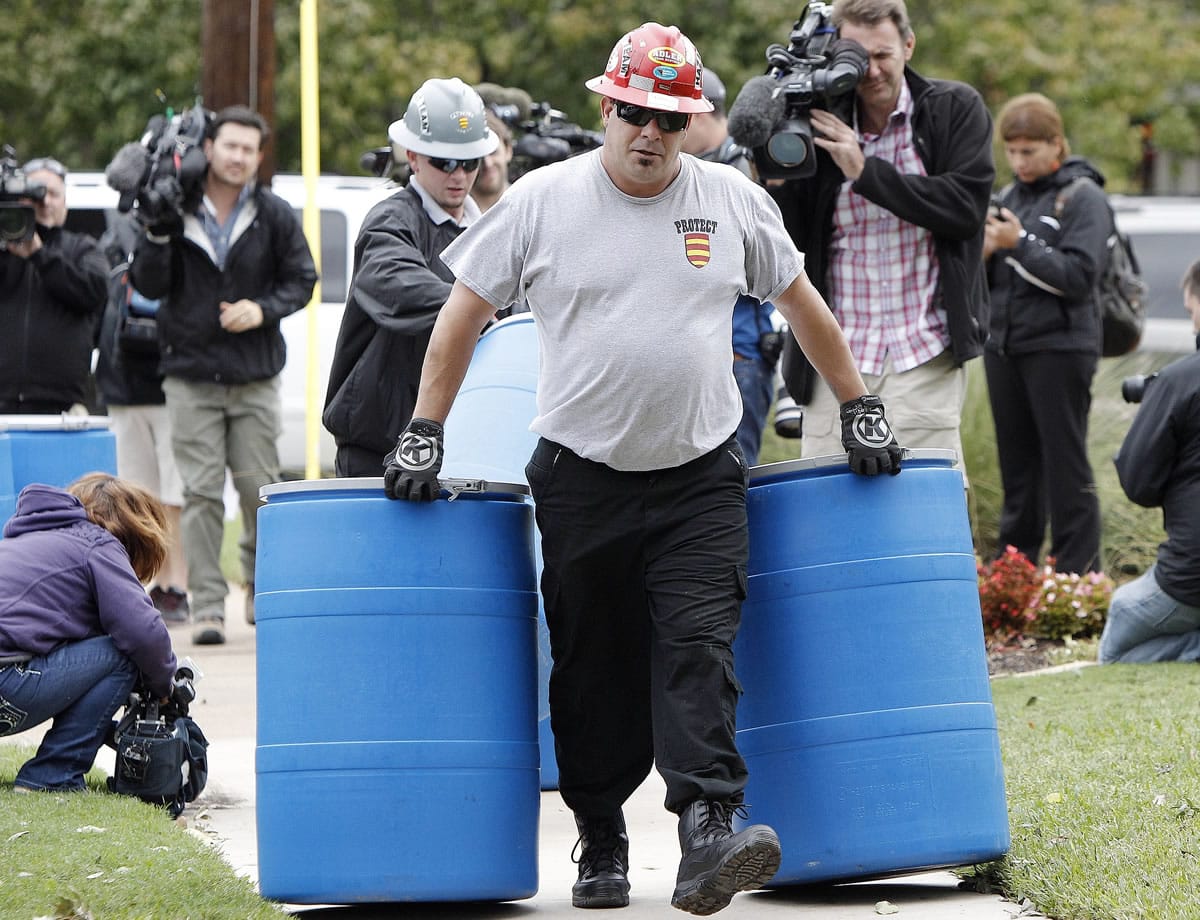FORT WORTH, Texas — The nation’s top disease-fighting agency acknowledged Tuesday that federal health experts failed to do all they should have done to prevent Ebola from spreading from a Liberian man who died last week in Texas to the nurse who treated him.
The stark admission from the director of the Centers for Disease Control and Prevention came as the World Health Organization projected the pace of infections accelerating in West Africa — to as many as 10,000 new cases a week within two months.
Agency Director Tom Frieden outlined a series of steps designed to stop the spread of the disease in the U.S., including increased training for health care workers and changes at the Texas hospital where the virus was diagnosed to minimize the risk of more infections.
A total of 76 people at the hospital might have had exposure to Thomas Eric Duncan, and all of them are being monitored for fever and other symptoms daily, Frieden said. In addition, health officials have been monitoring 48 others who had some contact with Duncan before he was admitted to the hospital.



